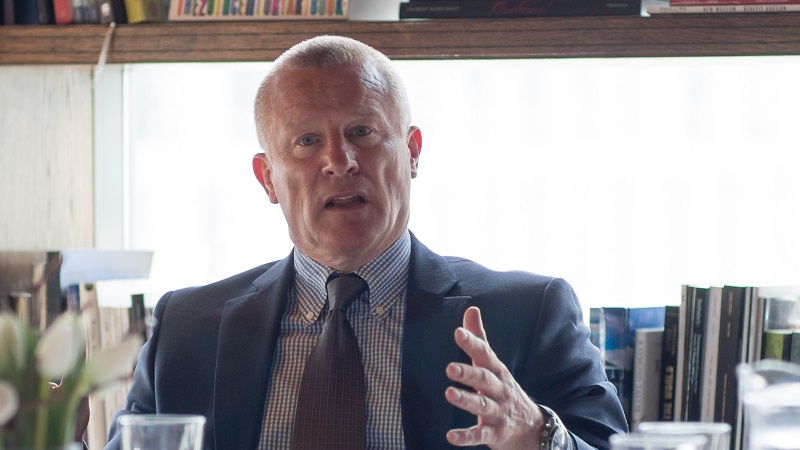BBC Panorama’s exposé of the UK’s fund management industry has left industry figures split over how it portrayed Neil Woodford’s demise as a fund manager and its potential damage on the perception of the UK’s financial services sector.
Some believe the programme, ‘Can you trust the billion-pound investors?’, wrongly tarred the entire industry with the same brush. They say inflammatory terms such as “gambling”, “high stakes game” and “the rock star of fund management” are misleading and merely serve to put investors off an industry still struggling to regain trust after the dark days of the 2008 financial crisis.
But others believe it rightly highlighted the industry’s regulatory shortcomings to the benefit of investors.
‘Biased and unfair’
Chelsea Financial Services managing director Darius McDermott says there is no doubt the Woodford saga has damaged the industry, but he feels the programme was “totally biased and unfair”.
In particular, McDermott has an issue with the way the programme “basically insinuated that [Woodford] just bought lots of high-risk illiquid companies, and that’s all he did”.
“The point they totally missed was that as investors redeemed and then redemptions picked up due to poor performance, and some stock specific issues, that automatically meant that the illiquid part of the portfolio rose.”
He adds: “There was just no reference or balance towards why the outcome was as it was. It was just, ‘This guy likes to gamble and gambles in high-risk companies’.”
Easy to be led by an experienced reporter
City Hive founder Bev Shah was one of the talking heads on the programme. Shah told Portfolio Adviser just two soundbites were used from a 90-minute interview in which she set the scene about what fund managers do and how savvy City insiders didn’t necessarily back Woodford.
Shah feels there was an agenda in reporter Richard Bilton’s line of questioning which kept coming back to the impact on Beryl, the lady from Harrow, and Geoff, the factory worker, who had thousands locked-up with Woodford.
“I think it’s very easy to be led by an experienced reporter like Richard Bilton. He was trying to get me to answer questions like, ‘Do you think it’s scandalous?’ I was like, ‘no’.”
Shah adds she was concerned by the direction the interview was taking. “I did highlight to them that it was really important that they were careful in terms of how they put out their messaging because I said they could have a real world impact on people’s investments and savings,” she says.
Entirely fair
But GBI2 managing director Graham Bentley thought the programme was “surprisingly balanced” and has not tarred the industry.
“To imagine that the management of trillions of pounds, dollars and whatever of investors’ money is entirely in the hands of altruistic individuals on the brink of sainthood is rather naïve,” he adds.
“Panorama rather pointed out that it is a complex industry that requires greater supervision in order to ensure investors are protected from rogue investment managers, moral hazard and potential conflicts. I think that’s entirely fair.”
Did Hargreaves escape the hook?
There was no mention of D2C platform Hargreaves Lansdown which is reported to have 291,520 customers with direct or indirect exposure to Woodford, accounting for £1.6bn. Critics have railed against Hargreaves for championing Woodford funds on its favoured funds list despite the issues over liquidity having been flagged for a long time.
“Given the amount of coverage in the national written press about Hargreaves Lansdown and Woodford, they clearly got off lightly – it was a subject that was totally ignored,” says McDermott.
Shah says: “I do think they got off lightly because I think most of the audience of Panorama would be investing via a platform. And it’s only those platforms that gave them access.”
But Bentley says: “I note that the lady investor [Beryl] had her account with Hargreaves Lansdown. The programme makers clearly illustrated how investors and the wider industry were persuaded by his [Woodford’s] reputation and that he let them down. That was their story, ie laying blame at his door, and to an extent the FCA, rather than complicating it with the influence of distributors, and of course Panorama was under no obligation to promote advice over self-selection.”
A chance for the industry to reflect
Shah feels the whole episode has made the industry take a long hard look at itself regarding how it is perceived by the public since the global financial crisis.
She says: “We don’t have an public identity, which over the past 10 years may have served certain people in the industry well, but actually it’s meant that we’ve lost all that trust and we haven’t built our own identity away from hedge funds and away from venture capital and private equity, and all the different niche businesses or industries that go on in the City.
“This isn’t really about the fees debate and it’s not about what’s on the factsheet. It’s about going even deeper and actually really basically looking at who we are. Would a person on the street even recognise what we do as an industry? They wouldn’t.”
McDermott adds: “I think the really bad outcome is this is not the sort of thing to help encourage people save for their futures into equity markets or into funds. At a time when people know they will not be able to live on a state pension and need to save into an Isa or a pension. The longer you do it, the better it will be and the more you can put in over time, the better it will be. These are just bad messages.”
Portfolio Adviser asked Woodford Investment Management for its reaction to the Panorama programme, but it declined to comment.











